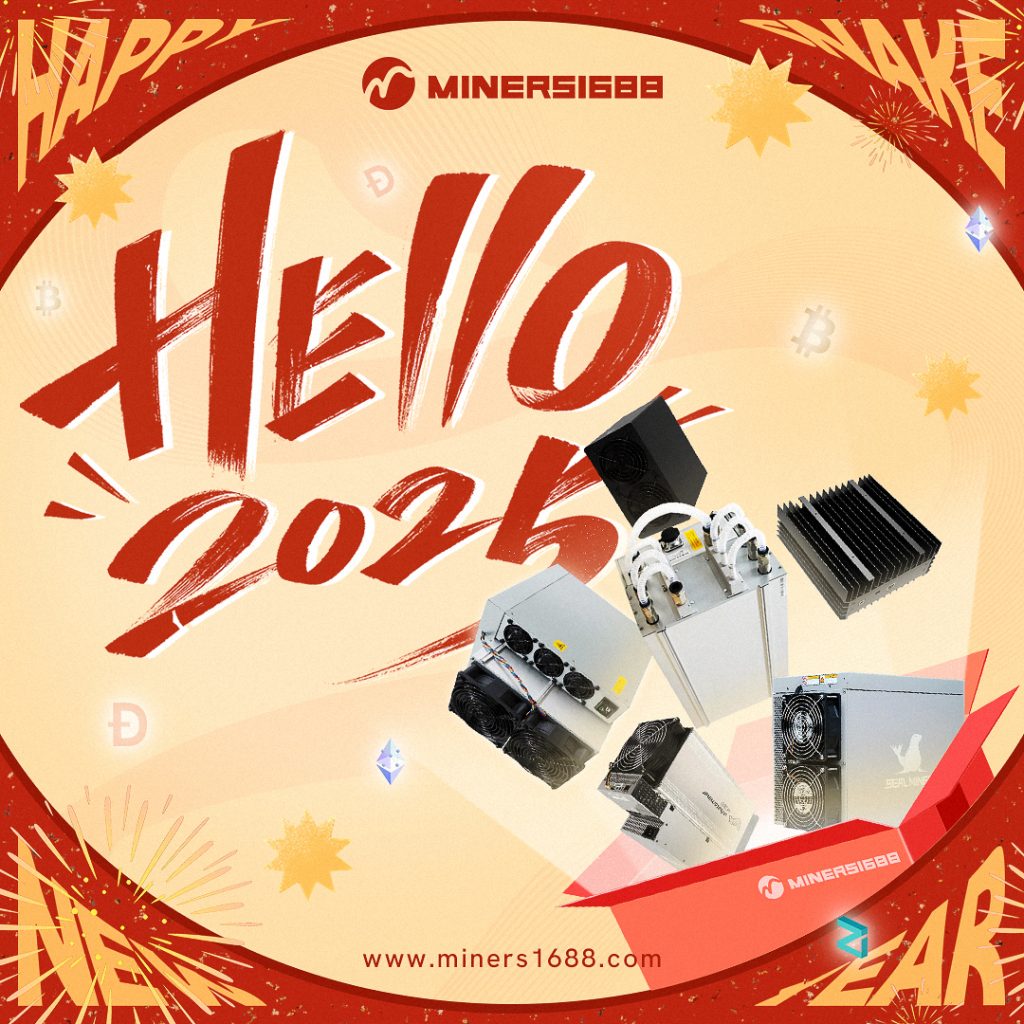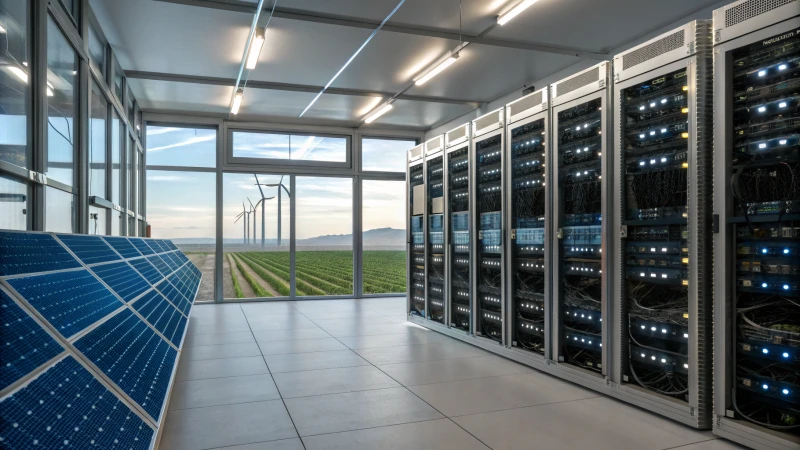
I remember when I first learned about cryptocurrency mining. It seemed like entering a sci-fi film.
In 2024, trends in cryptocurrency mining really focus on renewable energy and the newest mining hardware. AI also becomes important. Market dynamics probably shift after the Bitcoin halving.
At that time, the idea of digital coins mined from computers fascinated me like a digital treasure hunt. Now, in 2024, the situation has changed very much. Miners do not only chase digital gold but also confront a fast-changing world. They harness renewable energy. They embrace AI technologies. They constantly adapt to stay ahead. Each trend offers unique challenges and opportunities. These changes impact our strategies. This is significant for the future of crypto mining.
How Is Renewable Energy Transforming Mining Operations?
Mining is very green now. This surprises many people. I love nature and care for our planet. Seeing renewable energy change mining excites me.
Renewable energy is changing mining. It reduces carbon emissions. It really lowers operational costs. Energy independence goes up. Miners use solar power. They also use wind and hydropower. This leads to sustainable practices. It also makes mining more efficient.
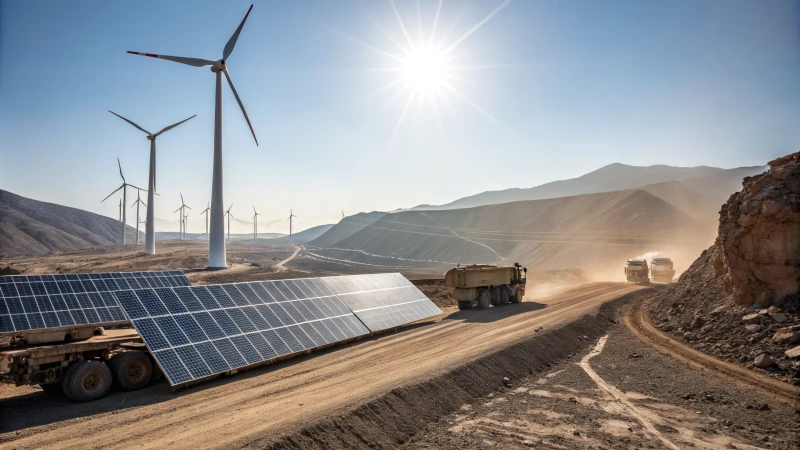
The Role of Solar and Wind Power in Mining
Picture vast lands with both earth-moving machines and solar panels shining under the sun. This is reality at many mining sites. I visited a site with solar panels and saw how they reduced dependence on fossil fuels significantly. In places where wind is as regular as my morning coffee, wind turbines spin endlessly. This reduces environmental harm and is also cost-effective for mining.
Solar and wind power are becoming increasingly popular in mining operations. These renewable energy sources1 provide a steady supply of electricity that miners can utilize to power equipment and processes.
Hydropower: A Game Changer
If you’ve stood by a rushing river, you understand water’s power is tremendous. Some miners cleverly use hydropower to create electricity with little harm to nature. Imagine a system where water’s flow powers mining equipment and supports energy grids. It’s a win-win for miners and nature alike.
Hydropower offers a reliable and clean energy alternative for mining operations located near water bodies. By harnessing the power of flowing water, miners can generate electricity with minimal environmental disruption.
Economic Benefits of Renewable Integration
Switching to renewable energy is not only planet-friendly but money-saving too. I’ve seen how it lowers electricity bills. After installation, solar and wind energy often cost less than traditional fuels.
A reduction in electricity bills2 is one of the primary advantages, as solar and wind energy sources are often cheaper than traditional fossil fuels once the initial setup is complete.
Moreover, here’s a clever idea: when miners have extra energy, they probably sell it back to the grid, turning a profit from surplus production. It’s like finding a bonus dollar in your coat pocket.
| Renewable Source | Benefits | Challenges |
|---|---|---|
| Solar Power | Low emissions, cost-saving | High initial investment |
| Wind Power | Clean energy, scalable | Requires consistent wind supply |
| Hydropower | Reliable, environmentally friendly | Location-dependent infrastructure |
Environmental Impact Reduction
I often think about the environmental footprint we leave and how industries must improve. Mining companies using renewable energy cut down their carbon footprints greatly.
By lowering greenhouse gas emissions, they match global sustainability goals. They also avoid legal issues and fines by following environmental regulations3.
How Are Technological Innovations Changing Our World?
Have you ever thought about how new technology is transforming our world? Explore with me as I uncover innovations that change industries and daily life. These changes are very significant.
Technological breakthroughs such as AI, blockchain, quantum computing and biotechnology are changing industries. These advances improve efficiency, increase security and solve very old problems. AI and blockchain really transform how businesses operate. Quantum computing probably changes data processing speed. Biotechnology helps with really complex medical challenges.
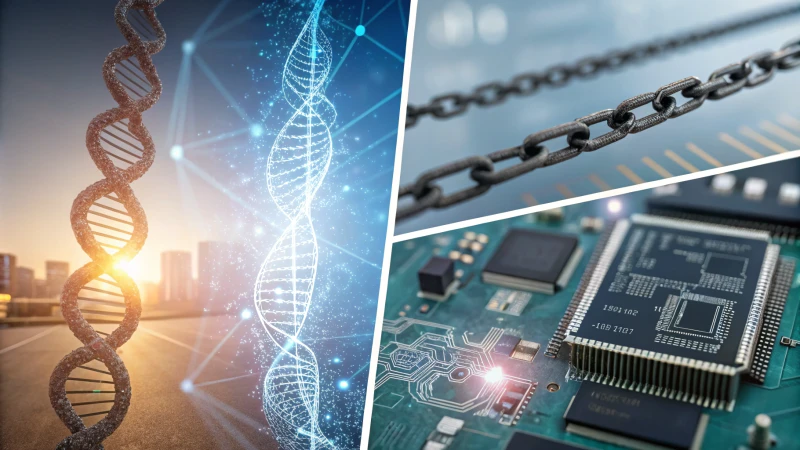
Artificial Intelligence: Revolutionizing Industries
When I think about recent years, it amazes me how much technology has really changed our lives. Let me show you some of the most thrilling new developments.
Artificial Intelligence (AI) is transforming sectors ranging from healthcare to finance. I remember my first meeting with AI in healthcare during a hospital visit, where I watched doctors use AI algorithms for predictive diagnostics4. This technology doesn’t just analyze data; it saves lives by quickly scanning large datasets.
In finance, AI acts like a guardian angel. It detects fraud before it occurs and automates trading systems. Companies leveraging AI can make data-driven decisions faster than ever before—faster than I decide what to eat for lunch! Watching advances in deep learning and natural language processing is fascinating.
Blockchain: Beyond Cryptocurrency
Blockchain started with Bitcoin, but its reach now extends far beyond that. Originally known for supporting cryptocurrencies like Bitcoin, blockchain technology is now utilized in various sectors. Its decentralized nature ensures secure and transparent transactions, making it valuable for supply chain management5 and smart contracts.
The transparency and security it offers are true game-changers, especially in sectors relying heavily on trust. Picture a world where all transactions are secure and open—blockchain offers exactly that. It ensures data remains intact and cuts down on fraud.
Quantum Computing: Unleashing Unprecedented Power
Quantum computing feels straight out of a sci-fi film. Quantum computing promises to solve complex problems beyond the reach of classical computers. In cryptography and drug discovery, this technology could lead to groundbreaking discoveries once considered impossible.
Tech giants invest heavily in quantum computing, hinting at a future with unprecedented computing power. It feels reminiscent of upgrading from an old PC; you just feel its great potential.
Biotechnology: Engineering the Future of Health
Biotechnology is really paving the way for a much healthier future. Techniques like CRISPR gene editing sound like magic but are very real. They allow scientists to tweak DNA sequences with hope for curing genetic disorders.
The idea of personalized medicine intrigues me—imagine treatments tailor-made just for you based on your genes! Biotech firms6 also explore synthetic biology, crafting organisms with specific traits for industrial use.
Tables: A Snapshot of Key Innovations
These innovations are truly changing how industries function and how we live our lives:
| Innovation | Key Sectors | Impact |
|---|---|---|
| AI | Healthcare, Finance | Improved efficiency, predictive analytics |
| Blockchain | Finance, Supply Chain | Enhanced security, transparency |
| Quantum Computing | Cryptography, Drug Discovery | Solving complex problems |
| Biotechnology | Healthcare | Personalized medicine, genetic engineering |
As they develop further, their ability to improve efficiency and solve global challenges will likely continue to grow.
How are AI and HPC changing the mining landscape?
AI and HPC are changing the mining industry completely. They transform old methods into new ideas for the future. These powerful technologies are really reshaping mining.
AI and HPC are transforming mining. They improve processes and increase safety. Costs drop significantly. AI provides real-time decisions through its analytics. HPC supports complex calculations. Mining becomes very efficient and sustainable.
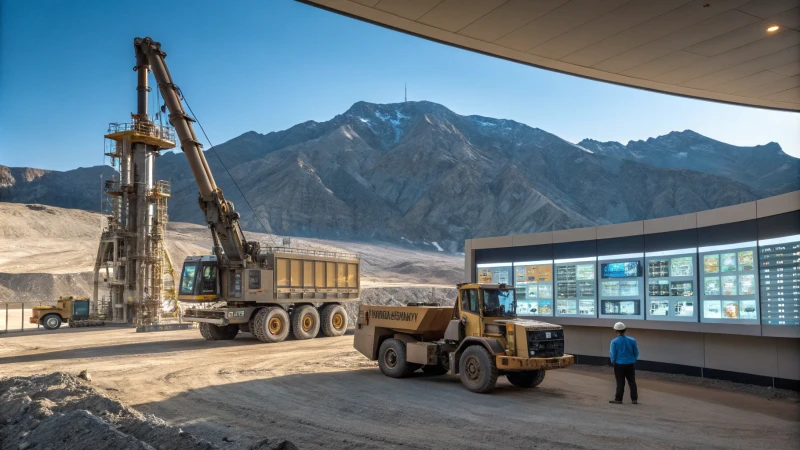
Transforming Mining Operations with AI
I remember hearing about AI taking charge in mining. It felt like diving into a sci-fi story where machines predicted breakdowns beforehand. Machines can foresee when equipment might fail, saving time and resources by reducing downtime. This is reality now and helps us use human skills wisely, focusing on jobs that need human attention.
By integrating AI into monitoring systems, companies can also track environmental impacts instantly. A miner once shared with me that an AI algorithm helped his team cut emissions greatly, meeting all those tricky rules. It was like having a nature-loving guardian angel watching over the operations.
For more on AI‘s impact on predictive maintenance in mining, explore this resource7.
Enhancing Computational Tasks with HPC
High-Performance Computing (HPC) enhances computational tasks in mining. Vast data from surveys gets processed quickly, helping decide where to drill or mine next with amazing accuracy.
Furthermore, HPC supports advanced modeling and simulation tasks. These models can predict mine stability and assess environmental impacts. This foresight keeps us safe and mindful of our environment.
Consider reviewing the HPC applications8 for more detailed examples.
AI and HPC in Safety and Environmental Monitoring
Safety is crucial in mining. AI and HPC strongly improve safety. I visited a site where AI predicted dangers like landslides or equipment problems before they happened. An early warning system processes these predictions fast, allowing quick actions that save lives.
Environmentally, these technologies provide insights for sustainable practices. I saw how understanding groundwater contamination through HPC models protects local ecosystems.
Explore how these technologies support environmental safety9 in mining.
| Technology | Benefits in Mining |
|---|---|
| AI | Predictive maintenance, real-time monitoring |
| HPC | Advanced modeling, rapid data processing |
The integration of AI and HPC in mining creates more than efficiency; it builds a safer and greener industry. These technologies allow swift adaptations to market changes and rules, guiding us toward a brighter mining future.
How Does Биткойн Halving Affect Miners’ Profits?
When Bitcoin reduces its block rewards, miners face big changes. It’s similar to the universe shifting. Fresh strategies become important. They need new technology to keep going.
After a Bitcoin halving, miners get fewer block rewards. Competition grows tougher. Miners need new technology. They must change strategies. Mining needs to use less energy to stay profitable. Market changes add pressure.
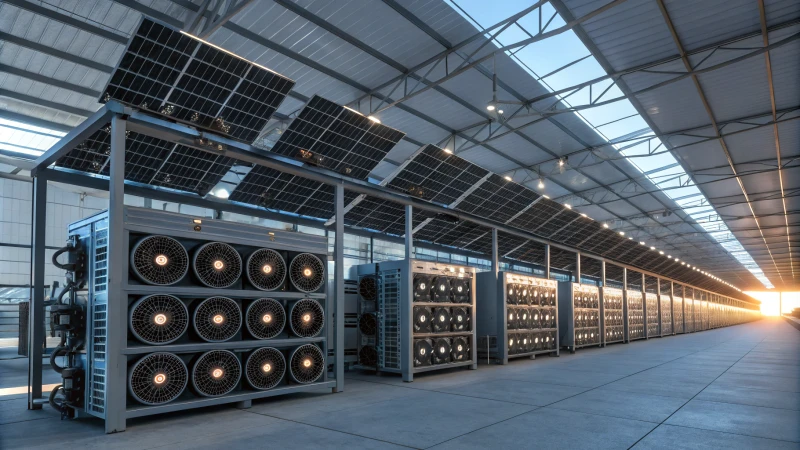
Decreased Block Rewards
The first time I understood a Bitcoin halving’s impact, it felt like losing half my paycheck. This event reduces block rewards for miners, meaning fewer bitcoins for each mined block. Without a big increase in bitcoin prices10, it presents a tough financial situation. Like many others, I had to look at my costs deeply and search for ways to lower expenses and keep my business running.
Technological Adaptations
Staying ahead in mining is very important. I am attracted to next-gen ASIC miners because they have better hashrate capabilities11 and use less energy. It’s more than just owning the latest technology; it’s about survival. I upgraded to an immersion cooling system once, which greatly reduced heat and extended my machines’ life, making my operation much more efficient.
| Technology | Benefit | Example |
|---|---|---|
| ASIC Miners | Higher Efficiency | Antminer S19 |
| Immersion Cooling | Reduced Costs | LiquidStack |
Renewable Energy Integration
The environmental impact of mining is serious, so moving to renewable energy is crucial. Setting up near solar or wind farms is not only eco-friendly but also smart for business. Using sustainable energy12, I reduced costs and stayed environmentally responsible, which truly helped me save money.
Navigating Market Dynamics
Market changes after a halving feel like steering a ship in a storm. I’ve learned to monitor cryptocurrency prices closely and adjust my mining activities accordingly. Joining a mining pool changed things for me by allowing me to share resources and rewards, offering stability when working alone was not effective.
Regulatory Challenges
Regulations keep changing as mining’s environmental impact is examined. Staying informed about these changes is necessary for compliance, which means reporting energy use and emissions when needed. Understanding this regulatory landscape13 is vital for long-term success.
Capital and Efficiency
Competition has increased as public mining companies gather funds to expand operations and improve fleet efficiency. Investing in tech and infrastructure becomes crucial as rewards go down. Strategic mergers and acquisitions are also growing trends that help gather resources and expertise.
By accepting these changes, I have positioned myself better in this fiercely competitive landscape after a halving.
Заключение
In 2024, cryptocurrency mining trends emphasize renewable energy, advanced hardware, AI integration, and adapting strategies post-Bitcoin halving to enhance efficiency and sustainability in a competitive landscape.
- Discover how solar and wind power improve mining sustainability and efficiency by reducing carbon footprints and operational costs.
- Explore how integrating renewable energy in mining operations can lead to significant cost savings and economic advantages.
- Learn about the impact of environmental regulations on the mining industry and how renewables can help in compliance.
- Explore how AI enhances diagnostic accuracy and efficiency in healthcare.
- Discover how blockchain improves transparency and reduces fraud in supply chains.
- Learn about biotech companies advancing synthetic biology for industrial uses.
- Discover how AI-driven predictive maintenance reduces downtime and improves efficiency in mining operations.
- Learn how HPC supports complex computations, enhancing decision-making and operational efficiency in mining.
- Understand how AI and HPC contribute to improved environmental monitoring and safety protocols in mining.
- Understanding the relationship between Bitcoin prices and miner profitability is crucial for assessing market impacts post-halving.
- Exploring the advantages of ASIC miners helps miners optimize their operations amidst reduced block rewards.
- Leveraging renewable energy can significantly cut costs and ensure sustainable mining practices.
- Staying informed about regulatory changes is vital for compliance and operational sustainability.


